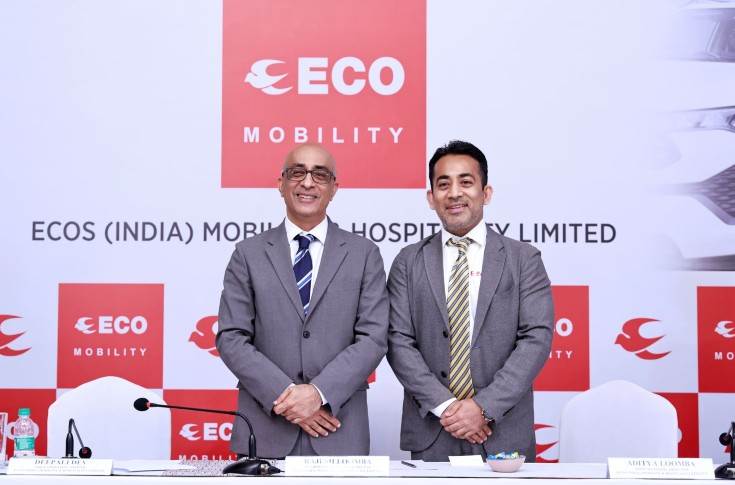As the dust settled from the tumultuous 1962 Sino-Indian conflict, Captain K.R. Loomba found himself at a crossroads. The end of his military career left him navigating a new terrain, one devoid of the certainties that military service had once provided. His only compass in this uncertain landscape? A driver’s license. For Captain Loomba, this seemingly modest document became the foundation of a venture that would, over the course of several decades, evolve into a cornerstone of India’s burgeoning automotive services industry. Today, that venture—ECOS Mobility and Hospitality—is poised to enter a new chapter as it prepares to go public.
ECOS Mobility, an acronym standing for Emergency Commissioned Officer Services, carries within its name the echoes of its founder’s past. Captain Loomba, an Emergency Commissioned Officer during the India-China war, transitioned from military service to civilian life with little more than determination. By 1996, this determination had transformed into a full-fledged business. ECOS began as a modest chauffeur-driven car rental service, a humble enterprise that, under Capt. Loomba and later his next generation’s stewardship, expanded to become one of India’s leading providers of corporate mobility solutions, boasting a fleet of over 12,500 vehicles and a presence in 109 cities across the country.
“The seed of this company was sown by him (Capt Loomba). He started from scratch—actually, from minus,” recalls Rajesh Loomba, the elder son of Captain Loomba and now Chairman and Managing Director of ECOS. Captain Loomba passed away in 2002.
The road to an IPO: A long time coming
On Friday, 23 August, 2024, ECOS announced the price band for its long-anticipated Initial Public Offering (IPO), marking a significant milestone in its corporate journey. The price range, set between Rs 318 and Rs 334 per equity share, with a face value of Rs 2 each, signals the culmination of years of growth and strategic planning. The offering is slated to open on Wednesday, August 28, and will close by the end of the week, with anchor investors getting an early start on August 27. Through this IPO, ECOS aims to raise as much as Rs 601.2 crore by offering 18,000,000 equity shares to the public.
The IPO proceeds will not be directed toward the company’s expansion. Instead, the selling shareholders, including Rajesh, Aditya Loomba, Nidhi Seth, the Rajesh Loomba Family Trust, and the Aditya Loomba Family Trust—who together hold 97.75% of the company’s equity—will retain the proceeds. The company executives added that being a cash rich company, they have enough funds of its own for expansion needs.
Navigating the corporate mobility landscape
Today, ECOS ranks among India’s largest and a profitable provider of chauffeur-driven car rentals and employee transportation services to corporate clients in the organised space. The company’s asset-light model—where only 5-10% of its vehicles are company-owned—has allowed it to scale efficiently, catering to over 1,100 corporate clients, including several Fortune 500 companies. ECOS’ role in the transportation of G20 delegates during India’s hosting of the summit is a recent testament to its operational capabilities and industry standing, the company executives added.
The financial health of the company reflects this growth. In FY24, ECOS reported a net profit of Rs 62.531 crore, a significant increase from Rs 43.591 crore in FY23. Revenue, too, has seen a steady rise, with FY24 figures reaching Rs 554.411 crore, up from Rs 422.676 crore the previous year.
Challenges and triumphs
The trajectory of ECOS has not been without its challenges. The journey from a Rs 100 crore topline in 2015 to nearly Rs 400 crore in 2020 was marked by numerous “ups and downs,” as Rajesh Loomba describes it. The COVID-19 pandemic, in particular, posed an existential threat to the travel and mobility industry. Yet, ECOS demonstrated resilience, ready to rebound as travel demand surged post-pandemic. By FY23, the company had not only recovered but surpassed its pre-COVID revenue figures, achieving normalized growth in the subsequent fiscal year.
The growing demand for corporate mobility:
The Indian corporate mobility market is experiencing robust growth, driven by the transition from remote work back to office settings, an increase in corporate travel, and the expansion of office spaces, particularly in tier-II and tier-III cities. According to a report by Frost & Sullivan, the employee transportation services (ETS) market in India was valued at $6.1 billion in FY23, with organised players holding a 15% market share. Similarly, the chauffeur-driven car rentals (CCR) market was estimated at $4.7 billion, with organized segments capturing about 25% of this market.
As the company embarks on this new chapter, Captain Loomba’s family, and for the investors who will soon hold a stake in the company, the ECOS journey is just the beginning.










